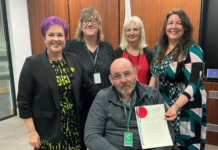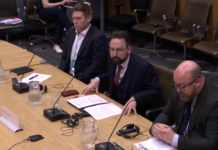£32 BILLION HOLE IN UK SAVINGS POTS AS COST-OF-LIVING INCREASES BY ALMOST £500 PER MONTH
- Since August 2022 almost a quarter (23%) of hard-pressed consumers have accessed an average of £2,623 of savings to pay for the rising cost of living.
- Consumers are spending an average of £494 a month more to pay for housing, food and energy bills than they were in August 2022
- One in six people (16%) intend to use some or all their short-term savings to cover future rises to living costs.
- One in five people have less than £100 in savings, and of that, 17% have no savings at all.
The latest Cost of Living research from Royal London, the UK’s largest life, pensions and investment mutual, reveals how UK consumers have raided their savings to cover the rising cost of living. The cost of housing, food and energy bills have risen by an average of £494 a month by September this year when compared with August 2022.
In the fourth wave of its Cost of Living research, Royal London surveyed 4,000 UK adults, and found that more than one in five people (23%) have dipped into their savings as a direct result of rising living costs. The average amount that people have had to take out of their savings is £2,623, which equates to a staggering £32billion* being used to counter rising household bills.
There was positive news as overall savings levels were up amongst those surveyed, but this was largely driven by mortgage-free homeowners, who have double the average amount in savings of the sample as a whole (£33,858 vs. £17,575). Renters, especially those who live in social housing, have £3,642 in savings compared to those with a mortgage who have £11,601 – which is over three times as much. Worryingly, one in five people (21%) have less than £100 in savings, a figure that has been consistent since March**.
The research also found that three quarters of UK consumers (76%) were concerned about rising interest rates, following 14 consecutive rises in Bank of England Base Rate since December 2021. More than eight in ten renters (82%) said they are worried about rising rental payments, with the same proportion of homeowners with a mortgage (80%) stating they were worried about mortgage costs. This compares to four in ten renters and a third of mortgage payers being worried a year earlier**.
While the rising base rate has resulted in improved savings interest rates one in six people (16%) state that they intend to cover future rising bills with money from their short-term savings, meaning they’ll benefit less from the higher interest rates now on offer as they draw out their savings to cover rising bills. Almost half of people (46%) who have or plan to take money from their savings have focused on their ‘rainy day funds’, proving that the sentiment of putting some contingency aside has served many people well, and meant that only six per cent of people would fund future living costs increases via more spending on a credit card; five per cent of people would turn to friends and family to borrow money; four per cent would use a bank overdraft and only one per cent would turn to payday lending.
People were also keen to leave their pension savings intact with only one in 14 people (7%) stating that they’d consider using money from their long-term investments, such as their pension, in the future if they needed additional funds to cover increased living costs.
Sarah Pennells, consumer finance specialist at Royal London said:
“We’ve been tracking the impact of the rising cost of living on UK consumers since February 2022 and, while some people, especially those who are mortgage free, have been able to build up their savings, others have depleted theirs. That leaves some people with low financial resilience at a time when household bills have risen by almost £500 a month compared to August last year. The amount of rainy-day savings that people have already used to cover the costs of fundamentals, such as keeping a roof over their head and keeping themselves fed, is considerable and maintaining any savings will be very challenging as our research shows that people who have money left over once they’ve paid their living costs only have £192 a month, on average.
“While some people have been raiding their cash savings and one in 14 have been taking money out of their pension or other long-term savings, very few people have been stopping or reducing their pension contributions, with only two per cent saying they’d done that in the last six months.”
Tips for people struggling with the impact of the increased cost of living:
Find out where your money’s going
Start by finding out where your money’s being spent. It sounds obvious, but we may not realise exactly how much we’re spending each month – and what we’re spending it on – until it’s laid out in front of us.
Get your last three bank statements and credit card bills (or check online) and spend some time going through them, highlighting any areas where you think you’re spending money unnecessarily or spending too much. This could be on anything from a top of the range broadband package that you don’t need, to a mobile phone contract where you’re paying for data you don’t use.
Every month money is wasted on unused subscriptions, gym memberships tend to be the most common example.
Don’t bury your head in the sand, ask for help if you’re struggling with your energy bills
If you’re finding it hard to pay your energy bills, contact your energy provider to discuss ways you can pay them. They should agree a payment plan with you, which takes into account your current income and what you owe. Contact Citizens Advice if you can’t agree a plan.
See if you can reduce your Council Tax bill
Depending on your circumstances and who is living with you, you may qualify for a council tax discount. For example, you can get a 25 per cent discount if you’re the only adult living in the property (or if the other adult is, for example, a full-time student or has severe dementia). Find out what discounts are offered by your local council at GOV.UK.
People in Northern Ireland pay rates rather than Council Tax and different rules apply.
Check if you’re entitled to state benefits
Billions of pounds of state benefits go unclaimed each year, and you could be missing out. The national charity Turn2us has a free and confidential benefits calculator on its website (https://benefits-calculator.turn2us.org.uk/), which can help you work out which means-tested benefits you’re entitled to. It also has a grant search tool (https://grants-search.turn2us.org.uk/) for information on grants you may be able to apply for.
Get help with unmanageable debts
If you are struggling to pay for the essentials, you are using one credit card to pay off another, or your debts are causing you worry, then contact a debt advice charity, such as StepChange or National Debtline. They will be able to give you help with your debts, free of charge.
Reduce your food bills, if you can
Grocery bills can make up a big proportion of your household spending, so it makes sense to look for savings. Plan your meals for the next few days and write down your shopping list – this will help you avoid buying unnecessary items. Consider changing to a cheaper supermarket, or to different brands if you prefer a particular supermarket.
Help keep news FREE for our readers
Supporting your local community newspaper/online news outlet is crucial now more than ever. If you believe in independent journalism, then consider making a valuable contribution by making a one-time or monthly donation. We operate in rural areas where providing unbiased news can be challenging. Read More About Supporting The West Wales Chronicle
























